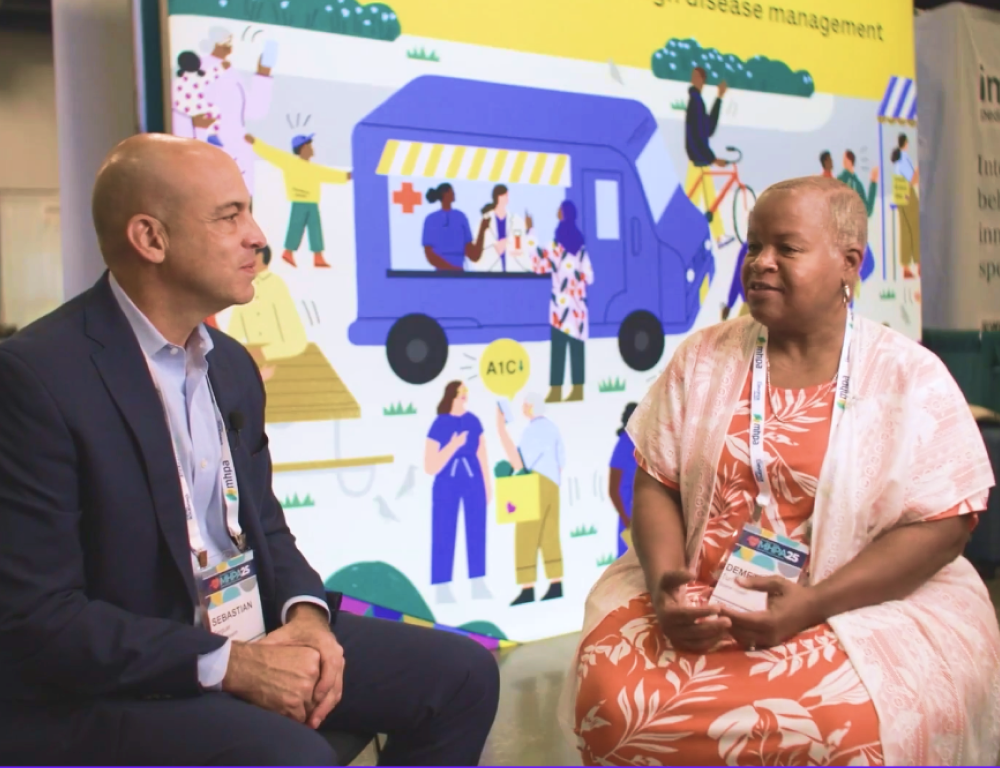Health Equity: The Common Thread Between the 2022 MHPA, AHIP, & Marcus Evans Conferences

emocha Health is now Scene Health. Learn more about our rebrand at www.scene.health/rebrand
The emocha team attended three healthcare conferences last week: AHIP’s Consumer Experience and Digital Health Forum, the Medicaid Health Plans of America (MHPA) 2022 Annual Conference, and the Marcus Evans ACO and Payer Leadership Summit.
After attending all three, it was clear there was a common thread tying them together: a heavy focus on health equity. In fact, one health plan attendee shared that they view every topic through this lens. So, with that in mind, here are three health equity-related takeaways from the conferences:
1. Digital health must focus on patient needs.
Healthcare discussions have often ignored patient input, especially in marginalized communities. But meaningful change towards advancing health equity relies on listening to patient voices.
Former Ohio Governor John Kasich spotlighted the need to center on the patient when explaining how he managed to expand Medicaid in Ohio in his MHPA conference session:
“You can’t ever take people out. There’s no other way to do this.”
The focus on listening and understanding patients’ unique needs was emphasized by Karen Dale, Chief Diversity, Equity and Inclusion Officer at AmeriHealth Caritas in her MCO Health Equity leaders session: “We are often deciding what we think people need. We’re not informed with their voices to understand in a deep way. We have to remember healthcare moves as fast as trust is enabled. ”She went on to advise MCO leaders to “be very careful with the words you use. Be person-centered. Check yourself on all of these things… Don’t assume they (patients) don’t have goals and aspirations and hope. When we put people in the ‘you poor thing’ box, it doesn’t feel good. Doesn’t work. I’m not a case, and you don’t have any right to manage me.”
These views were echoed in the Marcus Evans Summit where leaders from ACOs and health plans discussed their experiences integrating digital health into their operations and highlighted digital health’s potential to deliver convenient and customized care by focusing on patient input.
2. The future of health equity depends on high-tech, high-touch, and highly-personalized healthcare.
Beyond the need to listen to patient voices to create better and fuller patient experiences, maintaining a high-touch, personalized approach to care is a powerful mechanism for improving outcomes.
Jami Snyder, MA, Director of the Arizona Health Care Cost Containment System, highlighted the importance of understanding each patient’s circumstances as a part of delivering care, “As one provider said: I’m not going to talk about a preventative care visit with a patient if they don’t have a place to live.”
Dr. Tania Elliott, MD, CMO of Virtual Care at Ascension, emphasized the importance of tech-enabled solutions during her session at AHIP. as she took the audience through a virtual walk-through of a patient’s home to identify environmental triggers for asthma.
This exercise, reminiscent of our care team’s intimate relationship with patients, underscored the idea that health starts at home. As we know from experience, frequent patient interactions help providers understand each patient’s environment. Karen S. Amstutz, MD, MBA, SVP and CMO of AmeriHealth Caritas, called out the importance of prioritizing med adherence in a high-touch personalized care model:
“Medication support and engagement could be a great starting point to help patients with their overall health.” – Karen Amstutz, MD, MBA
3. Data drives health equity solutions.
While many entities in the healthcare industry see data as proprietary, multiple conversations mentioned that sharing de-identified patient data is critical to advancing health equity. Ashley Perry, MPH, Chief Solutions Officer at Socially Determined, stated, “We need to move on from thinking that’s our individual value proposition. This is a public utility.”
Data gathering as the first step to better understanding the needs of those we serve was a common theme. More than once we heard reference to the recent CMS Framework for Health Equity’s first priority to expand the collection, reporting, and analysis of standardized data (including race, ethnicity, language, gender identity, sex, sexual orientation, disability status, and SDOH).
Amstutz further built on this priority by sharing the example of identifying “digital twins” using data to build patient personas in the context of SDOH, and tailoring culturally appropriate outreach to these patients based on the data gathered.
The insights from last week’s conferences detail how to transform today’s one-size-fits-all system into one that can work for everyone. It’s clear that the answer to the health equity challenge will require imaginative solutions.
As a company that started with health researchers working with HIV patients in Uganda and has built our foundation in public Health serving vulnerable populations, we are energized to see health equity so prominently featured.
Our unique approach to medication adherence is a proven mechanism that delivers high-tech, high-touch, and highly-personalized care that advances health equity by creating a full patient experience.





.png)
